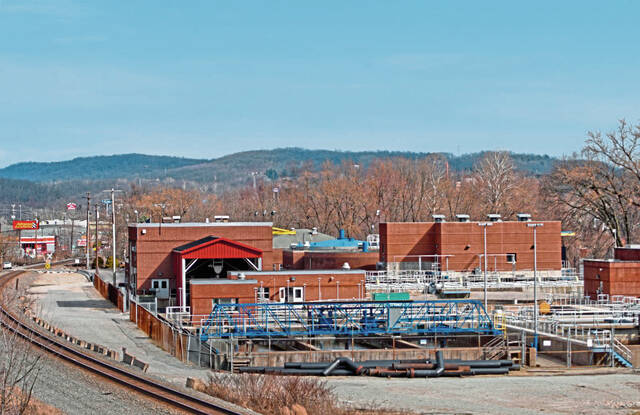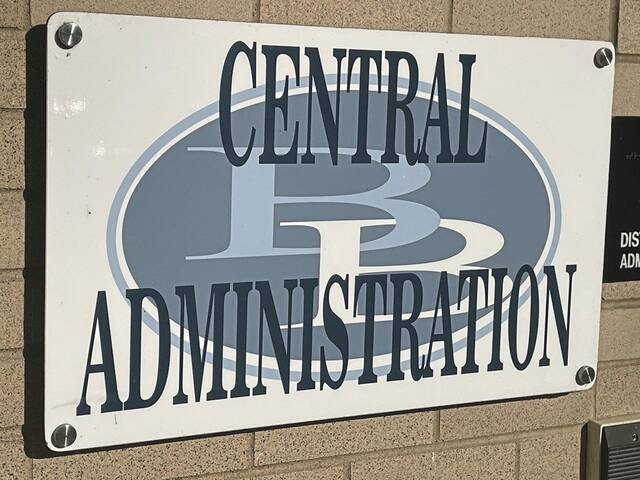The escalating cost of the Allegheny Valley Joint Sewage Authority treatment plant expansion is going to cost Harmar ratepayers to the tune of a 47% hike in sewage fees.
Officials said the plant expansion was first pegged at $35 million. Now, the cost has risen to $102.5 million.
In response, the township supervisors on Thursday raised the monthly rate for the authority’s 1,435 Harmar customers.
Users will now pay $11 per 1,000 gallons used — that’s up from the current $7.50 per 1,000 gallons, an increase of nearly 47%.
Of that $11 figure, $3.50 is for regular sewage treatment and the other $7.50 is for the plant expansion.
The new rates take effect March 1.
The vote for the rate hike was 3-2, with Chairman Bob Seibert, Harry Lenhart and Sam Boak voting yes. Bob Exler and Lee Biermeyer voted no.
The sewage authority bills each municipality annually. Each participating municipality then collects money from its users to satisfy the authority’s bill.
Four municipalities — Springdale, Springdale Township, Harmar and Cheswick — are served by the authority. Parts of West Deer, Indiana Township, Fox Chapel and Richland also receive service from the authority.
Some municipalities already have taken steps similar to Harmar’s because of the mandated plant expansion.
Springdale Mayor John Molnar said the borough already raised its rates to $11.25 per 1,000 gallons.
“We do not have control over it,” he said. “We have to pay our share.”
Molnar said the borough will review whether it will be necessary to raise sewage rates even more for next year’s budget.
Cheswick Council President Michael Girardi said Cheswick voted to raise its rates late last year. A flat fee was added to pay toward the plant’s expansion.
The usage rates there rose slightly, from $3.40 to $3.50 per 1,000 gallons. The flat fee going toward the plant amounts to $314.48 annually per household.
“This emphasizes how small municipalities need to work together more to find ways to reduce costs through collaborating,” Girardi said.
At the Harmar supervisors’ meeting, Seibert was angry that the authority hadn’t sought grants, citing a Feb. 13 article in the Tribune-Review describing Freeport acquiring an $11 million state grant for the $16 million needed for its new plant.
But officials said the median household incomes of Richland, Indiana Township, Fox Chapel and West Deer are higher than the four core municipalities in the authority’s service area, making it harder to acquire grants.
Seibert also criticized supervisors and authority board representatives Exler and Biermeyer for voting to fund the plant. Both supervisors said they went along with what the engineers recommended.
Seibert also said the rights of way for the bigger sewer pipes will impact residences and streets instead of going along the Norfolk Southern railroad track beds, thus partially accounting for the costs rising.
“The revised costs are outrageous,” Seibert said. “I’ve said they didn’t use the right paths. You could have run it down through Norfolk Southern’s property. The right of way costs are extremely high. We see how the authority spends money irresponsibly.”
“We went with what the engineers said was the best way to do it,” said Exler, who favored a $1-per-month hike.
As recently as May 9, 2020, the cost of the plant expansion was estimated to be $50 million to $60 million.
The authority plans to increase its treatment capacity from the current 5.5 million gallons per day to 8 million gallons by 2023.
Six years ago, Harmar supervisors saw the need to build up its sewer fund in anticipation of the treatment plant expansion.
As of Jan. 31, the sewer revenue fund had just under $1 million in it and the sewer plant expansion fund had a little over $1 million.








